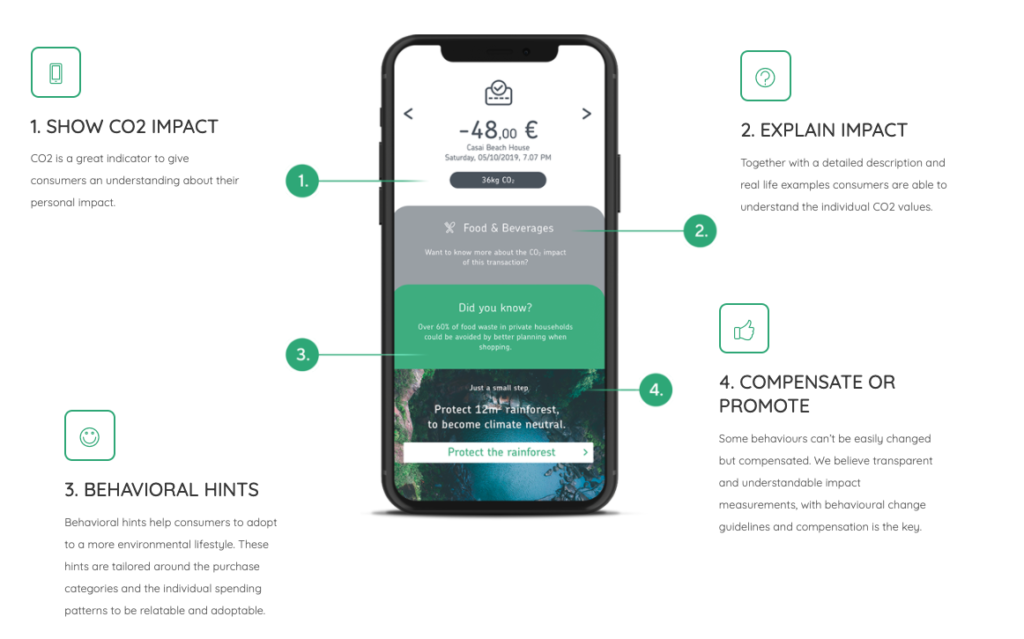66% of the world population and 73% of millennials are willing to pay more for sustainable goods, according to a study conducted by Nielsen in 2015. Coming of age at the tipping point of the environmental global crisis makes the current generation of adults and those soon to follow exceedingly conscientious about their environmental impact. Startup OFNK and its technical solution Ecolytiq wants to help bridge the education gap between consumers and how to reduce their impact on the planet.

How Mainstreaming the Conversation has Opened Up the Floor
Following the countless years of research and pushing from scientists, activist groups and conscientious individuals, the climate crisis is officially mainstream, finally pushed into the spotlight by the 2019 Fridays for Future movement. More people are interested in how to reduce their carbon footprint than ever before, but many who are just joining the conversation don’t know where to start.
Over the past years, OfNK has been building an index from the ground up. The company is linking public data with personal spending habits to demonstrate the inextricable link between our consumer choices and how we contribute to environmental decay. Additionally, it offers consumers immediate feedback, by giving tips and tricks for how they can limit their carbon dioxide footprint.
Co-Founder David Lais spoke with us about the lack of data around consumerism and carbon footprints and the need to develop an open standard. “There is no global standard yet. Existing players in the market provide their own CO2 index and those are usually built on global CO2 studies, but for example, you can’t really compare a country like Germany with Australia. We believe we need transparency on all levels. We need to know which studies are used to calculate your CO2 consumption. The streaming example shows scientists have their disputes as well and consumers should understand, it is not an easy task to conduct those studies and with new studies we gain new insights. The field is constantly changing. That’s why we built an open standard and invite everyone to participate,“ said Lais.

OfNK and Ecolytiq Are Elevating Emissions Literacy
It’s important to remember that each time we spend money, we are playing into the ecosystem of our economy, giving a financial upvote to certain products and the processes it takes to create them. There’s responsibility in being a consumer, but also great power underlying that responsibility. OfnK and Ecolytiq are creating a way to bring into the forefront of the conversation how those spending habits connect with our impact.
The team has partnered with well known financial institutions the world over, and the task is not small. The non-profit division of the company – OfNK – is working on developing a unique standard for each country, in partnership with local governments and institutions.
On a google hangout interview, Lais said, “So we basically analysed your bank account transactions. And based on where you spend your money, we can calculate what is actually your footprint. And in addition, we give you tips, hidden strings and we actually explain to you the impact that you have on the environment by your purchases. So ultimately, it’s kind of an end consumer educational tool and we will market it more or less for banks or financial institutions.”
The for-profit side of the company, Ecolytiq, is working on implementing the standard in partnership with bank’s services. Part of the process is to bring literacy about climate impact into the financial institutions so they can help customers get the most out of the service.
Lais talked about how it wasn’t always this way, having spent a majority of his career working in payment services and starting several companies. “I remember standing on stage at a conference in London in 2015 and saying, ‘I want to talk to you about climate change,’ and people looked at me like I had a stroke on stage.” Lais’s proximity to the industry means he is poised to have a big impact.
The mainstreaming of the climate conversation means a chance for broader discussions and even larger scale change via data-driven insights for understanding how being a consumer plays into emissions.


